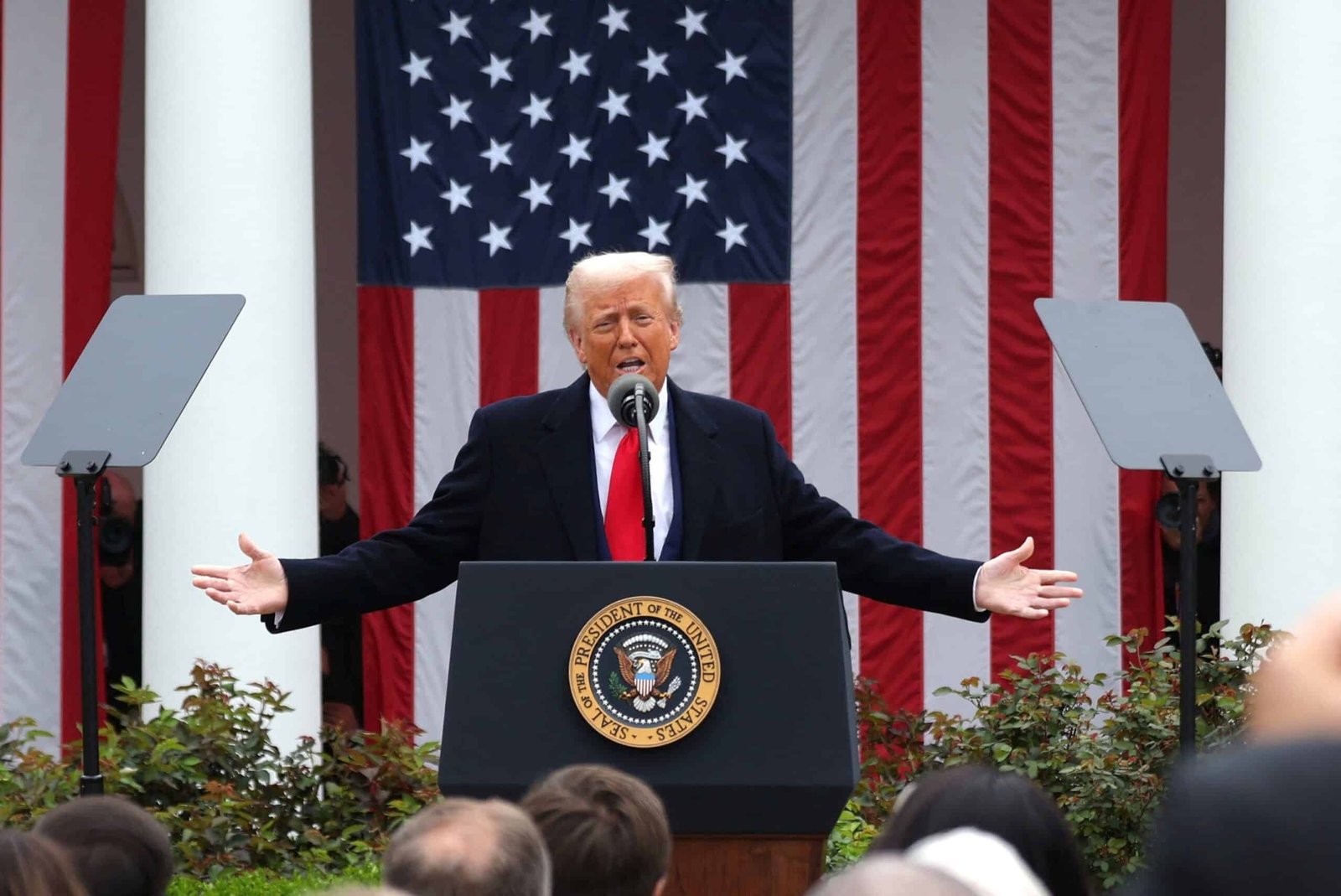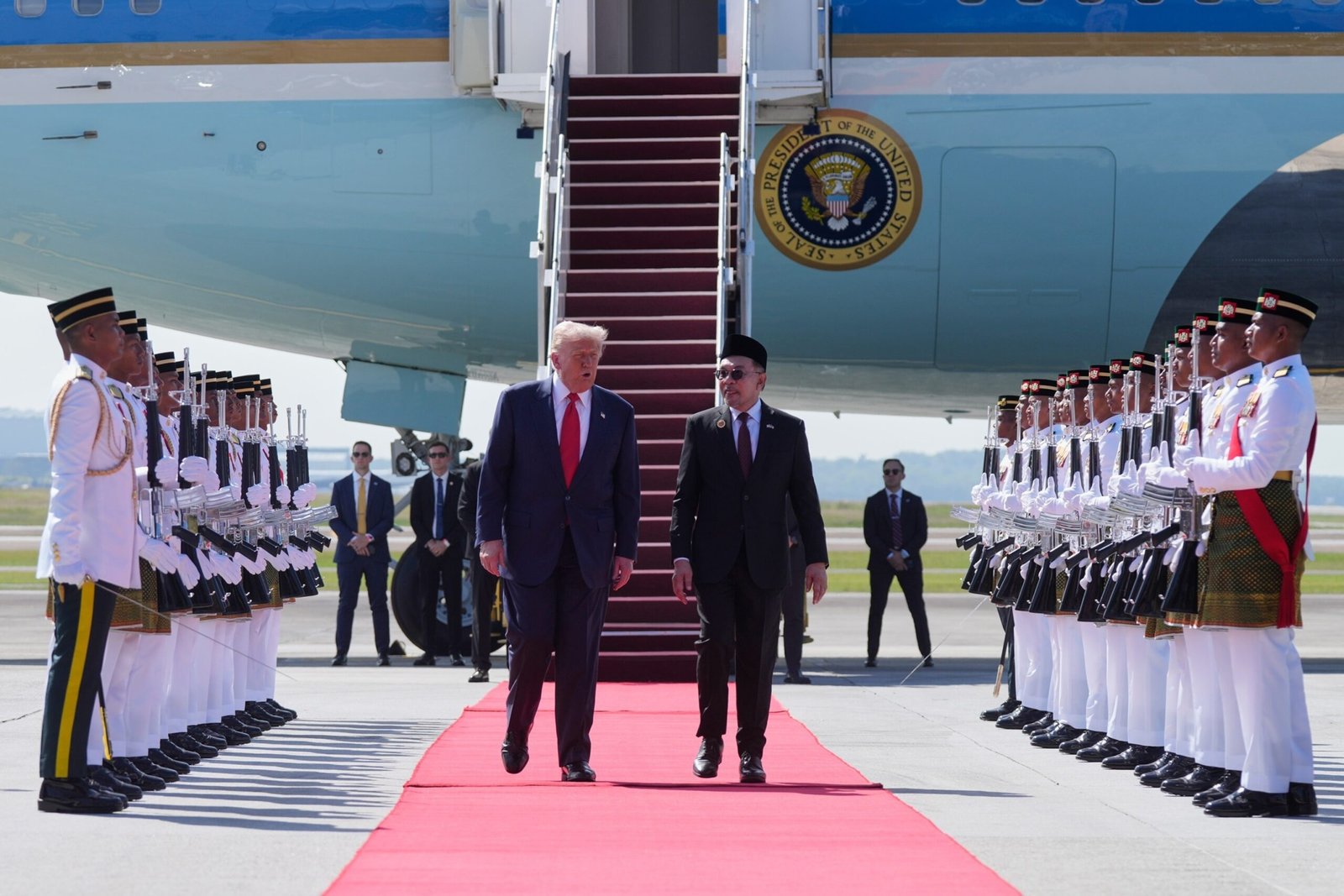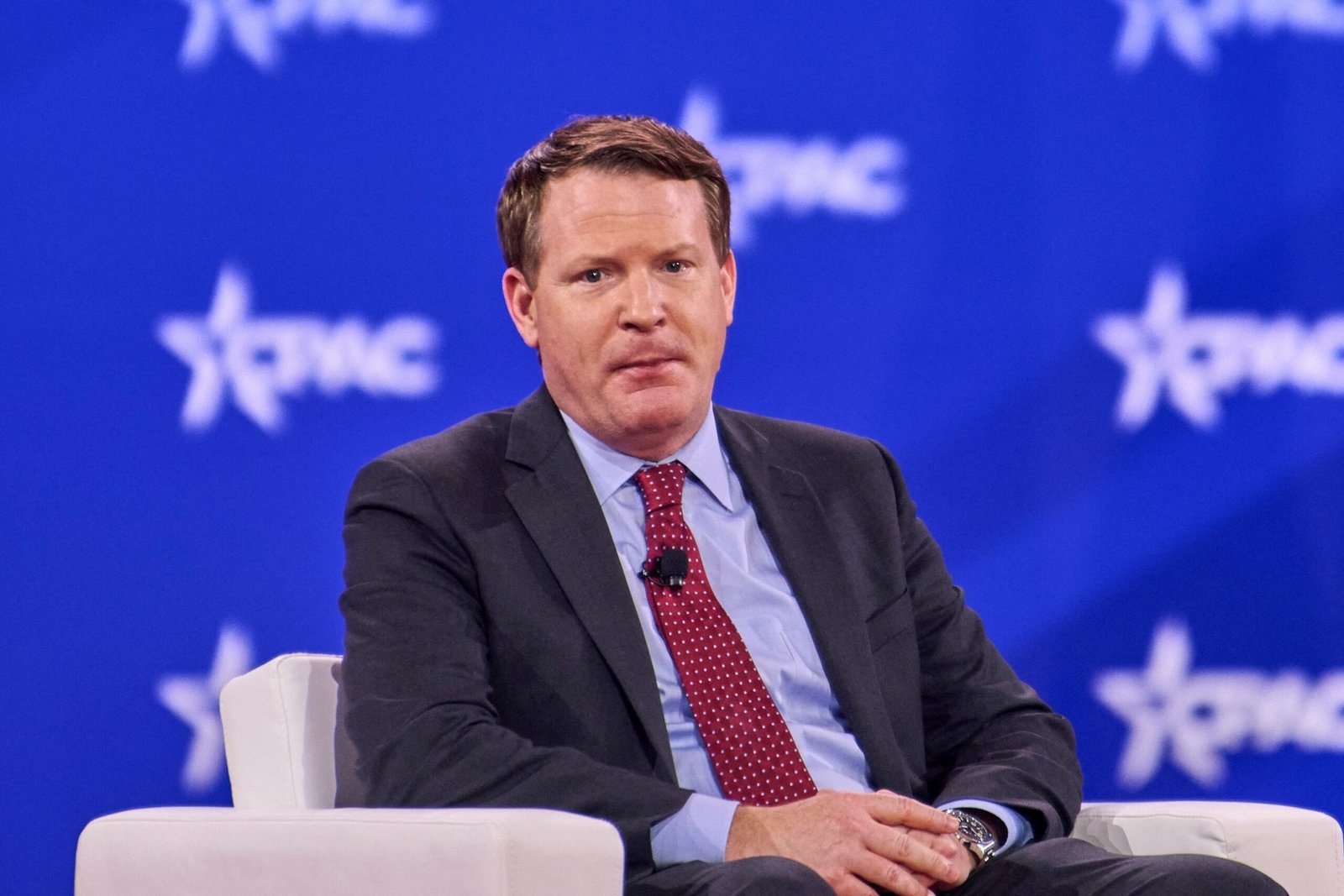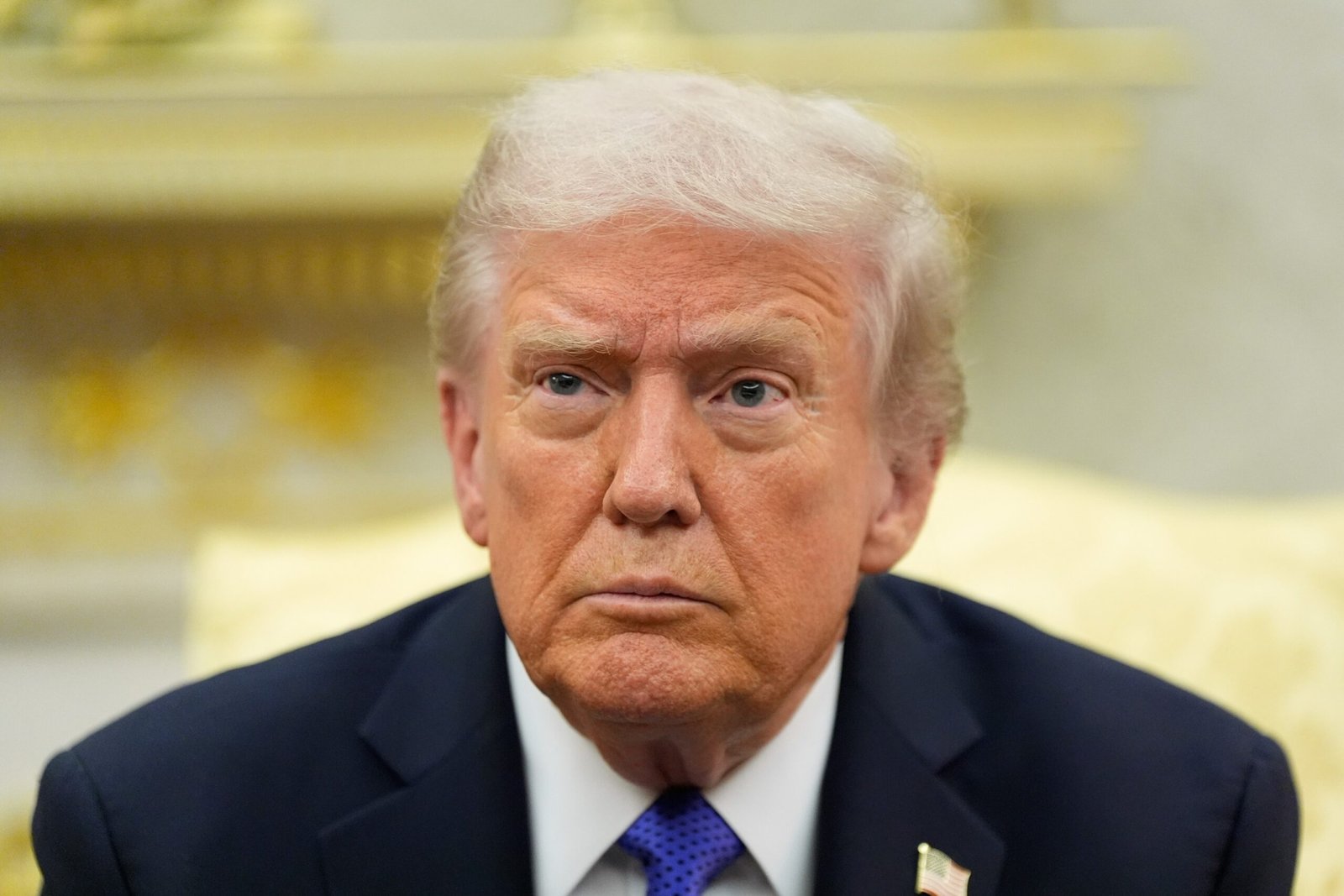President Donald Trump presents Wednesday of the White House Rose Garden, a set of import import rates as part of his “America First” agenda.
“My fellow citizens, this is the day of liberation,” Trump said at the beginning of his comments, claiming that the action will release the United States from the dependence of foreign goods.
The new measures include what Trump called “reciprocal tariffs” about “countries around the world.”
“On April 2, 2025, it will be remembered forever as the day when the American industry was reborn, the day the United States fate was recovered and the day we began to make the United States return to rich,” he said.
It is a moment in process for the president, but that comes with a significant political and economic risk.
Some experts warn that their movements could cause the economy to slide in a recession and the markets felt before Wednesday’s announcement, after weeks of agitation when Trump’s tariff policy changed and took shape.
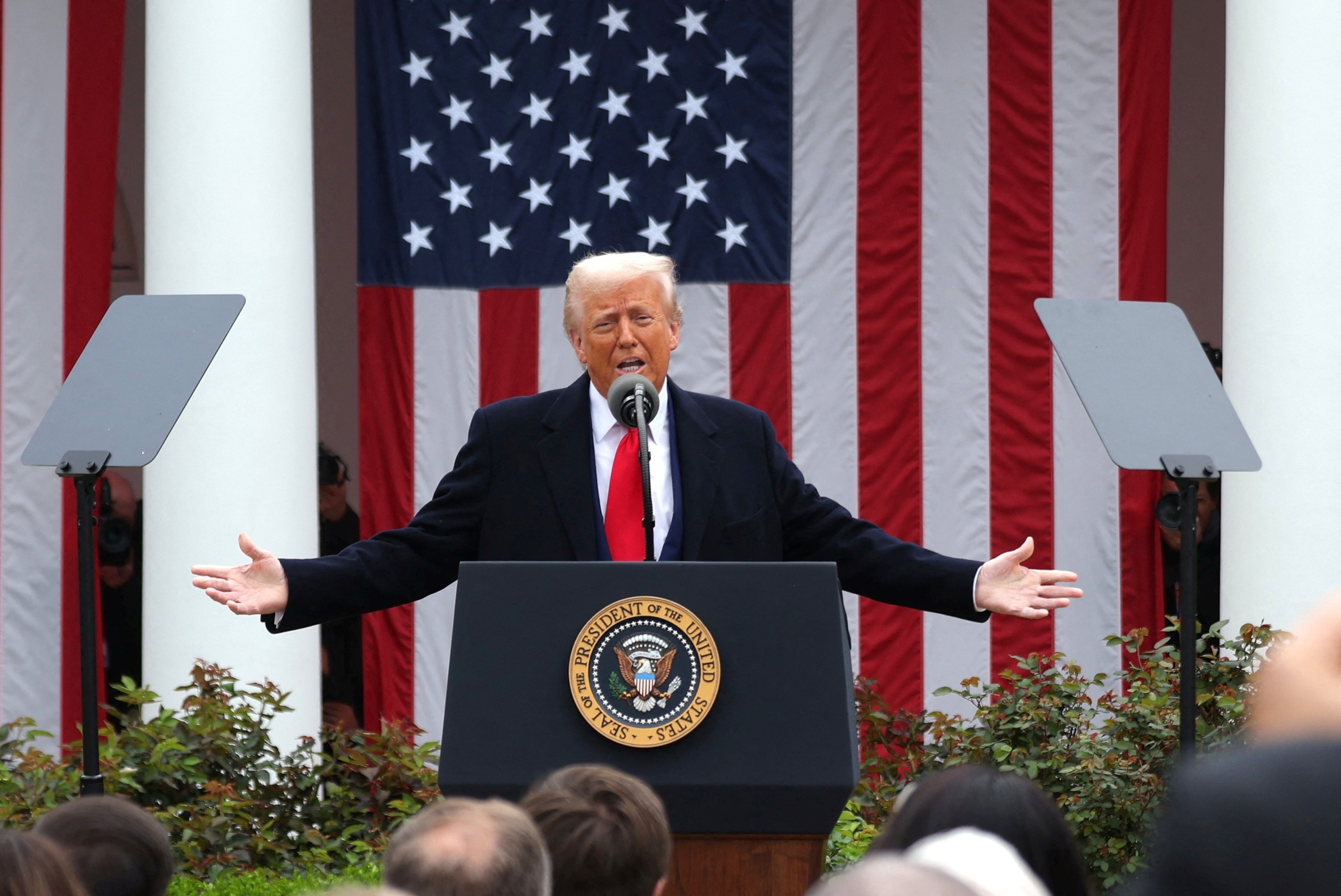
President Donald Trump offers comments on rates in the Rosas Garden at the White House in Washington, DC, on April 2, 2025.
Carlos Barria/Reuters
The White House had been a mother in details before Wednesday’s announcement, just confirming that tariffs will immediately take effect after being announced.
Only a few hours before the announcement, Trump and his main advisors were still trying to find some common land where they agree. A superior administration official said the situation was “still very fluid” after the meetings of Wednesday morning.
Selina Wang reported some options discussed in recent weeks, said Selina Wang correspondent for the White House of ABC News, a flat rate of 20% in all imports; Different tariff levels for each country depending on its taxes on US products; o Tariffs about approximately 15% of countries with the highest commercial imbalances with the United States
Wednesday’s tariffs are based on taxes already imposed by the administration, even in steel and aluminum, as well as certain products from China, Canada and Mexico.
The actions have tense relations with Canada and Mexico, two key allies and neighbors. Prime Minister Mark Carney said last week, the deep relationship of the United States and Canada about economic, security and military problems had effectively ended.
Canada has promised retaliation rates and Mexico said it will give its response at the end of this week. The European Union also said it has a “strong plan to retaliate.”
But Trump’s officials and administration are moving forward, arguing that the United States has been unfairly “torn” by other nations for years and is time for reciprocity.
“For decades, our country has been looted, looted, raped and looted by near and distant nations, both friends and enemies,” Trump said Wednesday.

President Donald Trump talks about his comments about tariffs in the Rosas garden in the White House in Washington, DC, on April 2, 2025.
Carlos Barria/Reuters
The economy was the main issue for voters in the presidential elections of 2024, with the Americans blaming President Joe Biden for high prices and Trump promising to bring financial relief from families.
The administration has painted tariffs such as Panacea for the large written economy, arguing that any experience experienced in the short term will be compensated with what they predict that important impulses in manufacturing, the growth of employment and income of the government will be important.
But it is not clear how much the public margin is willing to give Trump to overcome what he has called “a bit of disturbance.”
Already, just over two months after Trump’s second term, surveys show that their economy management is being received with rejection.
A Public Affairs Research Center of Associated Press-NORC survey Published on Monday he found that most Americans (58%) disapprove how Trump has been handling the economy.
In their commercial protectionist negotiations with other nations, specifically, 60% of Americans said they disapproved of their approach so far. It was his weakest problem in the survey among Republicans.
Trump’s republican allies in Capitol Hill have said they are trusting the president, but acknowledged that there will be some uncertainty to begin.
“It can be rocky at the beginning, but I think this will make sense for Americans and help all Americans,” said the president of the House of Representatives, Mike Johnson, at his weekly press conference on Tuesday along with other members of the Republican leadership.

The president of the House of Representatives, Mike Johnson, calls questions about tariffs while gathering with journalists at a press conference, in Capitol, in Washington, on April 1, 2025.
J. Scott Applewhite / AP
“You will see that prices change,” said representative Rich McCormick, a Georgia Republican, to ABC News correspondent, Jay O’Brien. “We are responsible for the American people. We represent them, if they are talking strong enough … I think the president has been very good to react to the public.”
Meanwhile, the Democrats promised to fight against the “teeth and nails” tariffs and were trying to force a vote aimed at reducing their authorities to impose taxes on Canada.
“Trump has done many bad things. This is up there,” said the leader of the Senate minority, Chuck Schumer on Wednesday.
Schumer criticized what he said was an “absurd, crazy and chaotic commercial war” stimulated by administration policies.


